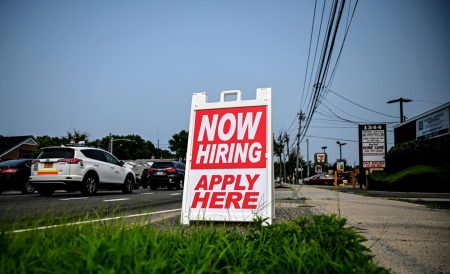The meteoric rise of Chinese fast-fashion giants Shein and Temu has illuminated a significant loophole in US trade policy, the “de minimis” exemption, sparking calls for reform and potentially impacting the future landscape of e-commerce. This provision, familiar to international travelers, allows goods valued under $800 to enter the US duty-free. Shein and Temu, by shipping individual orders rather than bulk cargo, exploit this rule, avoiding tariffs that traditional US retailers must pay on large shipments. This cost advantage has fueled their explosive growth, particularly within the Gen Z demographic, propelling Shein to estimated 2023 sales of $32 billion, a tenfold increase from 2019. The US, representing approximately a third of Shein’s market, has become a key battleground in this evolving retail war, with Shein surpassing established giants like Amazon and Walmart in the online fashion arena.
The “de minimis” loophole, while benefiting consumers with lower prices, has drawn significant criticism. US retailers, operating under traditional import structures, face a competitive disadvantage, paying duties while their Chinese rivals operate effectively tariff-free. Shein and Temu reportedly account for almost a third of the over one billion de minimis packages entering the US annually, underscoring the scale of this trade imbalance. Furthermore, the sheer volume of these packages – exceeding two million daily – presents a logistical nightmare for customs inspections, raising concerns about potential safety and security risks. This escalating situation has placed the “de minimis” exemption firmly on the political agenda, with incoming administrations prioritizing its reform as a key component of their trade policy with China.
Beyond the tariff controversy, Shein faces additional challenges, including ethical concerns about its production practices. Dubbed “the unstoppable face of throwaway fast fashion,” the company operates a network of around 6,000 Chinese factories, often criticized for labor practices and environmental impact. This reliance on low-cost production, combined with a direct-to-consumer model, allows Shein to offer remarkably low prices, fueling its popularity among cost-conscious Gen Z consumers. However, this business model clashes with the growing awareness of sustainability and ethical consumption, particularly prevalent among the same Gen Z demographic that constitutes Shein’s primary customer base. This inherent contradiction presents a potential vulnerability for the brand, raising questions about its long-term sustainability in a market increasingly sensitive to ethical considerations.
Shein’s pursuit of a public listing further highlights the complexities surrounding its business model. While aiming for a London IPO after failing to attract Wall Street interest, the company’s reliance on the “de minimis” exemption presents a significant risk factor. Should this loophole be closed, Shein’s cost advantage would evaporate, potentially impacting its profitability and market dominance. The company’s narrative of success, built on cheap labor, on-demand manufacturing, and direct sales, overlooks the crucial role of this tariff exemption. Addressing these challenges, including potential tariff changes and ethical concerns, will be crucial for Shein’s long-term viability and its ability to maintain its rapid growth trajectory.
The juxtaposition of Shein’s success with Gen Z’s environmental consciousness presents a profound irony. This generation, vocal about sustainability and ethical consumption, simultaneously fuels the growth of a fast-fashion giant whose business model thrives on low-cost production and potentially unsustainable practices. Whether this apparent contradiction represents a genuine conflict of values or simply a prioritization of affordability remains to be seen. The potential impact of tariff reforms and increased public awareness of Shein’s production practices could significantly alter Gen Z’s purchasing habits and reshape the competitive landscape of the fast-fashion industry.
The future of Shein and the broader fast-fashion market hinges on several key factors. The impending reform of the “de minimis” exemption poses a significant threat to Shein’s cost advantage, potentially leveling the playing field for US retailers. The effectiveness of these reforms, and their impact on Shein’s pricing strategy, will be a critical determinant of the company’s continued success. Furthermore, the growing awareness of sustainability among Gen Z consumers, combined with potential marketing campaigns by US competitors highlighting ethical concerns, could erode Shein’s market share. How Shein responds to these challenges, and whether it can adapt its business model to address ethical and environmental concerns, will ultimately determine its long-term viability in a changing market.










